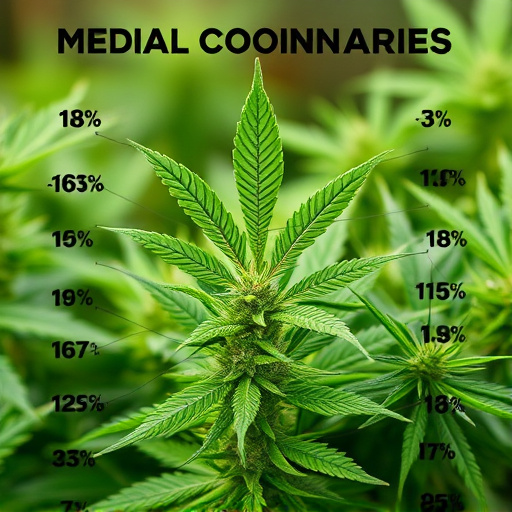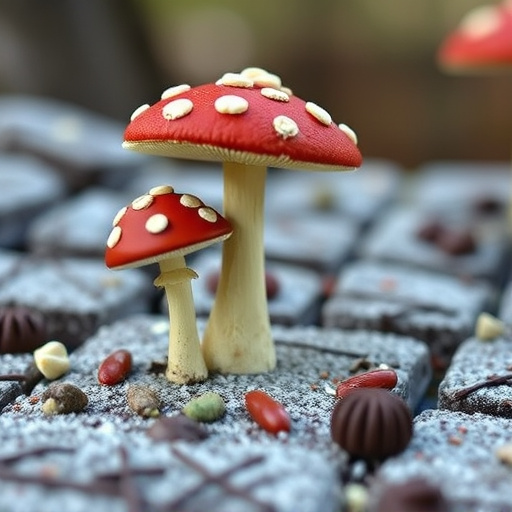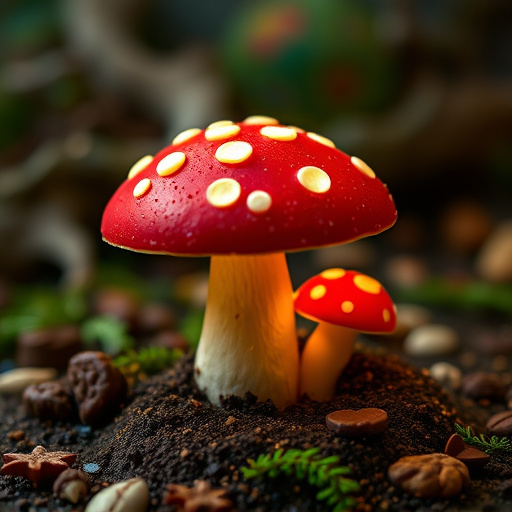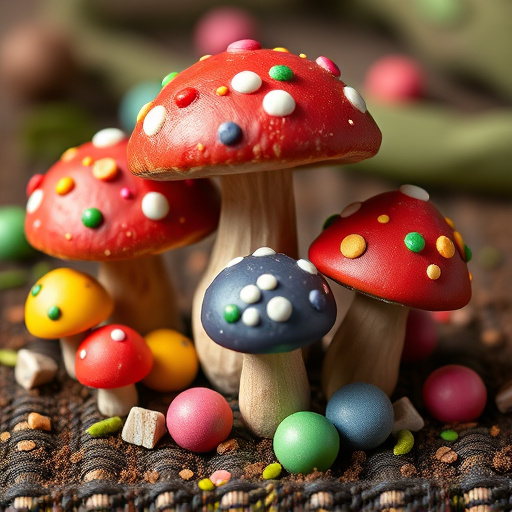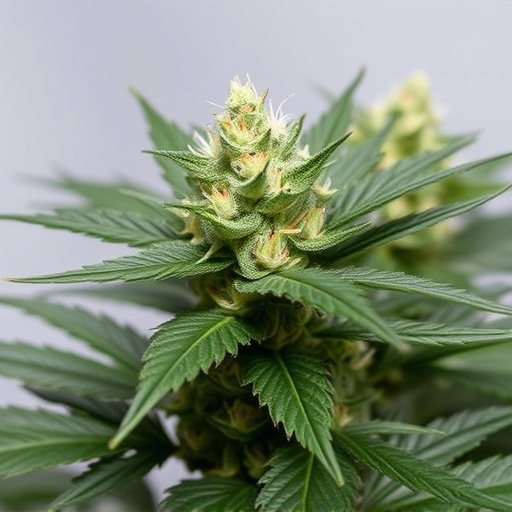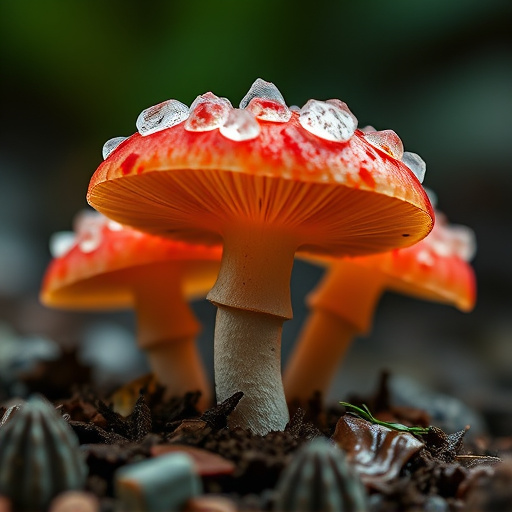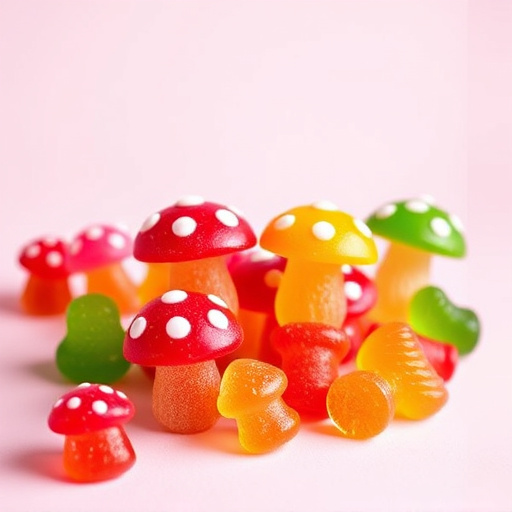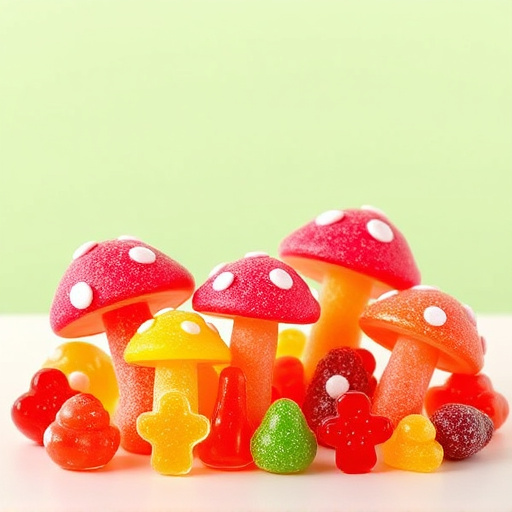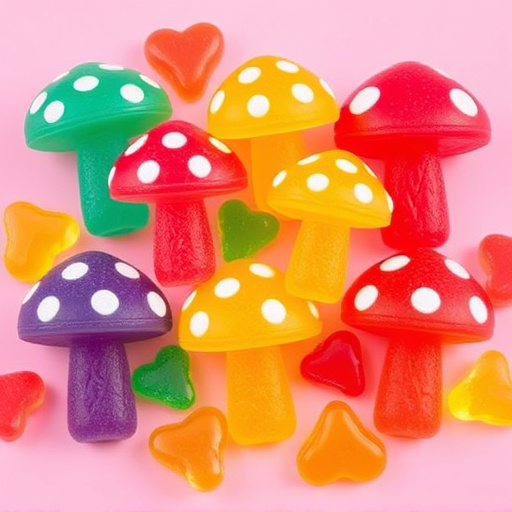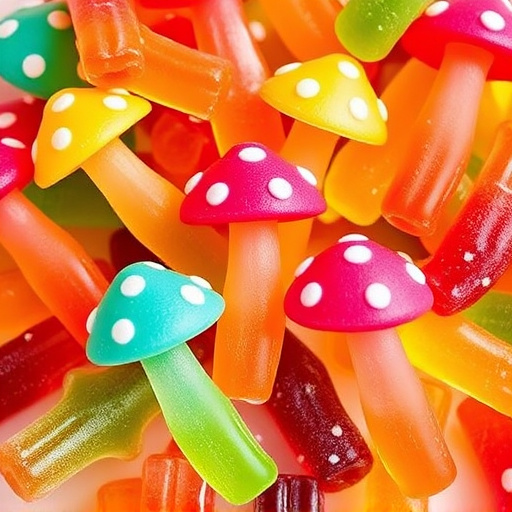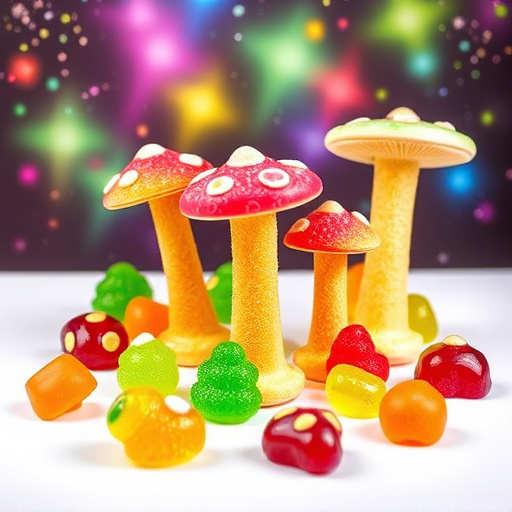Magic Mushroom Gummies, rich in psilocybin, show promise for anxiety relief by boosting brain plasticity. This compound alters neural connections, potentially reorganizing thought patterns associated with anxiety. Research suggests it can help process trauma, reduce anxious thoughts, and enhance emotional resilience, creativity, and problem-solving skills. However, more clinical trials are needed to fully understand their effects and ensure safe usage, emphasizing the need for caution.
Anxiety disorders affect millions, leaving many searching for effective relief. Traditionally, medication and therapy have been the go-to approaches, but what if there was a novel, natural alternative? Magic mushroom gummies, while sounding unconventional, are gaining attention as potential therapeutic tools. This article delves into understanding anxiety’s impact on the brain, exploring magic mushroom gummies as a promising treatment option, and highlighting the crucial role of brain plasticity in overcoming anxiety with these innovative products.
- Understanding Anxiety and Its Impact on the Brain
- Exploring Magic Mushroom Gummies as a Potential Therapy
- The Role of Brain Plasticity in Overcoming Anxiety with Magic Mushrooms Gummies
Understanding Anxiety and Its Impact on the Brain
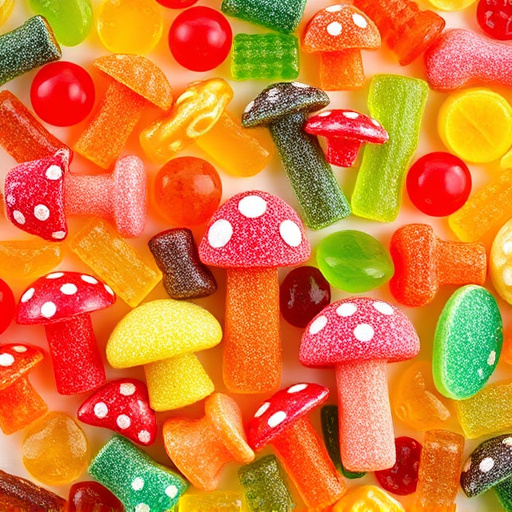
Anxiety, a common mental health challenge, affects millions worldwide. It’s more than just feeling nervous; it’s a persistent sense of worry and fear that can interfere with daily life. When left unaddressed, anxiety can have profound effects on brain function and structure over time. The brain, an intricate network of neurons and pathways, experiences changes in response to prolonged stress and anxiety. This includes altered connectivity between regions associated with fear processing, memory, and emotional regulation.
One emerging area of interest is the potential role of magic mushroom gummies in mitigating anxiety through their impact on brain plasticity—the brain’s ability to adapt and reorganize. Research suggests that compounds found in magical mushrooms, such as psilocybin, can promote neuroplasticity by binding to specific receptors in the brain, leading to changes in mood, perception, and thought patterns. This may offer a novel approach to anxiety relief by encouraging the brain to form new neural connections, potentially reducing symptoms and improving overall mental well-being.
Exploring Magic Mushroom Gummies as a Potential Therapy
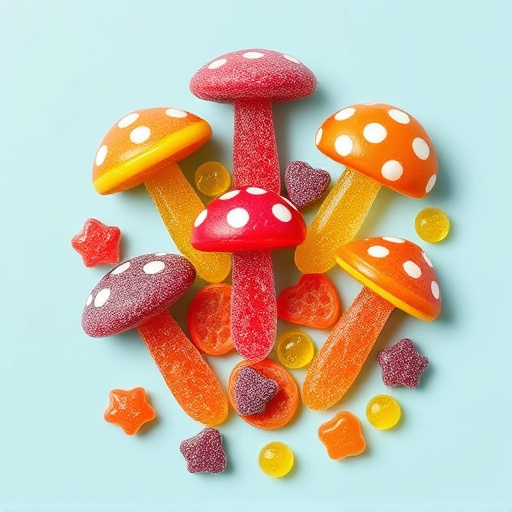
Magic Mushroom Gummies have gained attention as a potential therapeutic tool for anxiety relief, offering a novel approach to mental health treatment. Research suggests that psilocybin, the active compound in magic mushrooms, can induce altered states of consciousness and promote brain plasticity—the brain’s ability to form new neural connections. This process may help individuals process traumatic memories, reduce anxious thoughts, and foster emotional resilience.
The concept behind Magic Mushroom Gummies as anxiety therapy is rooted in the idea that psilocybin can enhance creativity, self-reflection, and problem-solving skills. By increasing brain plasticity, these gummies could potentially help individuals develop healthier coping mechanisms and improve their overall mental well-being. However, it’s crucial to approach this alternative treatment with caution, as more clinical trials are needed to fully understand its effects and ensure safe usage.
The Role of Brain Plasticity in Overcoming Anxiety with Magic Mushrooms Gummies
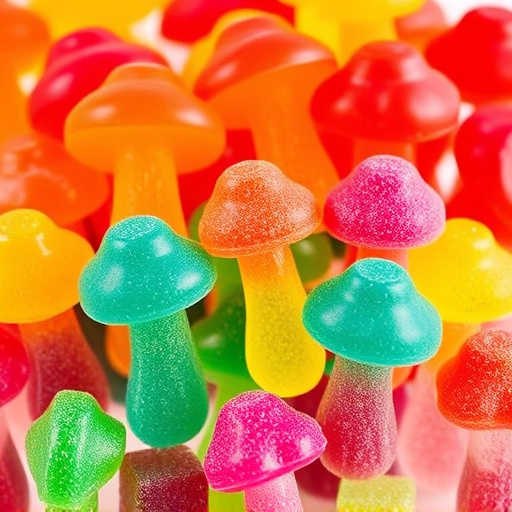
Anxiety disorders are often associated with rigid thought patterns and emotional responses that can be challenging to break free from. Here’s where brain plasticity comes into play. The brain’s remarkable ability to rewire itself, known as neuroplasticity, is a key factor in understanding how Magic Mushroom Gummies might offer relief for anxiety. When individuals experience anxiety, certain neural pathways become strengthened, leading to recurring and sometimes overwhelming anxious thoughts. However, with the introduction of compounds found in magic mushrooms, such as psilocybin, these pathways can be altered.
Psilocybin has been shown to stimulate neuroplasticity by increasing blood flow to specific brain regions and enhancing communication between them. This process allows for the formation of new neural connections, potentially breaking through the barriers that contribute to anxiety disorders. By promoting a state of altered consciousness and heightened sensory perception, magic mushroom gummies can facilitate a different perspective on anxious thoughts and feelings. This shift in perception may enable individuals to challenge and recontextualize their fears, leading to long-lasting changes in emotional responses and overall well-being.
In conclusion, while Magic Mushroom Gummies show promise as an alternative therapy for anxiety relief, their effectiveness stems from the brain’s remarkable ability to adapt and rewire itself through a process known as brain plasticity. By understanding how these gummies interact with the brain’s neural pathways, we can unlock new potential for managing anxiety disorders. Further research into this area is crucial to explore the long-term benefits of Magic Mushroom Gummies and ensure their safe and ethical use in mental health treatments.
